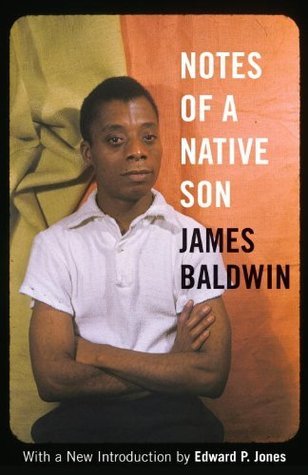- The Good: Short and thoughtful chapters that converge into a great body of work
- The Bad: In some cases dated, but still powerful
- The Literary: Highly acclaimed nonfiction essays about race and identity from an American black man
In this nonfiction collection of essays, James Baldwin paints a portrait of America from the perspective of a young black man in the 1950s. The essays range from critique of popular books and movies, to religion and politics, to his time living in Paris.
Wow, I can certainly see why James Baldwin is a favorite of the academic community. His prose demands attention and considers multiple angles. The writing is passionate yet logical. He’s outraged yet empathetic. But most of all he’s thoughtful in a way that inspires the reader to be thoughtful too.
The first section of the book critiques Uncle Tom’s Cabin and Aunt Jemima, and it’s interesting to see the origin of what I consider modern thought for these archetypes and tropes about black people. I particularly like the idea that any movie or book about race shouldn’t make you feel sentimental. “The story of any people is never pretty”, and we must understand the complexity to give justice to the situation.
The second section of the book is quite personal, set in Harlem and Atlanta, following either Baldwin’s own life or someone close to him. It’s about a lot of things, but what resonates with me is that we as a people set up expectations for who and what we are, particularly for black men and women, and with societal restrictions in place, it’s a challenge to not become the very thing you’re taught you are—bitter, hateful, irrational, less than.
The third and final section of the book follows Baldwins’ time in France and his experiences of living abroad in a culture and a country not his own, of confronting a romanticized place and seeing it for what is really is, and of how his skin color means something very different to Europeans than what it does to Americans.
Baldwin’s work is classified as African American literature, and these essays are certainly primarily about race, but it’s bigger than that. His essays touch on what it means to be an underrepresented class of citizens, how we’re tied to our history, and what is means to be an American, both black and white.
Highly recommended as a stimulating and intellectual read from a literary giant.
